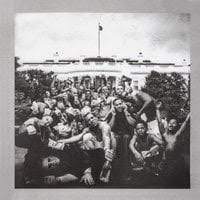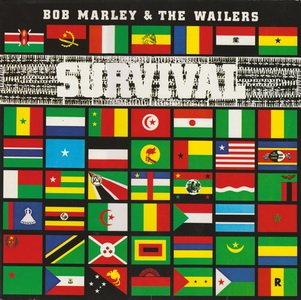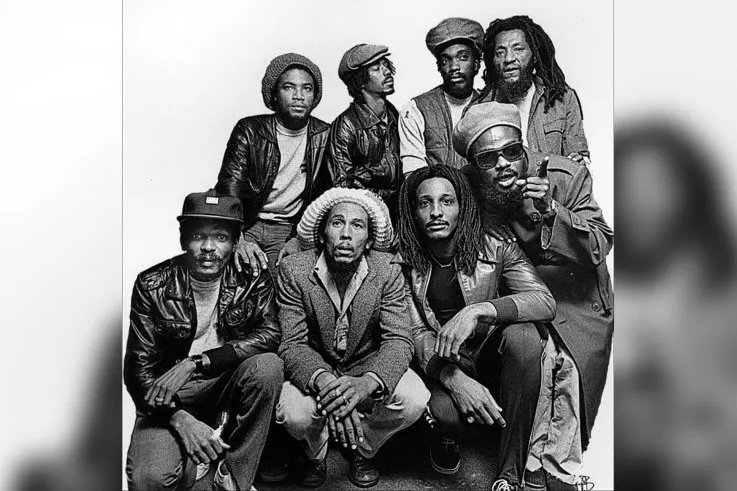New Zealand’s Haka, and the Depth of Music as a Political Message
/In terms of world politics, there are few recent events as moving as what took place during New Zealand’s November 14th parliamentary meeting. Anyone who keeps up with international politics has likely seen this video:
The video features New Zealand Member of Parliament, Hana-Rawhiti Maipi-Clarke, performing the haka as she tears apart the proposed bill to reinterpret New Zealand’s founding treaty. Soon after she begins, other Māori members of parliament join her, as do those in the gallery.
I admittedly had no idea what the haka was before seeing this video, but the powerful scene immediately grabbed my interest and inspired me to find out more. So, what is the haka?
The Haka
The haka is a traditional ritual performed by New Zealand’s indigenous Polynesian population, the Māori. The ritual serves numerous ceremonial purposes, which range from welcoming guests and mourning deceased to giving instruction and transmitting social and political messages.
photo: Newzealand.com
The haka originated from a Māori myth about Tane-rone, son of the sun god, Tama-nui-te-ra, and the summertime goddess, Hine-Raumati. Legend says, Tane-rone would dance for his mother each summer, causing the air to quiver in what, to us, appears to be heat waves. The haka symbolizes this action through its focus on hand gestures, primarily gestures of trembling.
In practice, the Māori people would perform the Haka to welcome visiting tribes. They would also practice the ritual to reinvigorate soldiers before battle.
When there were still numerous thriving Māori tribes, each tribe had slight variations on the haka, involving its unique history. However, as is the case with numerous countries worldwide, colonialism would limit this rapidly developing culture for generations to come.
Colonialism in New Zealand
1769 was the beginning of the end for the Māori’s independence. That is the year British explorer, James Cook arrived. After the land showed promising signs for profit, Britain’s interest would grow over the next 60 years as colonialists increased contact with indigenous tribes.
photo: maorimovement.co
Nearly all contact between the Māori and Europeans passed peacefully, but the few instances of European killings doomed the Māori island to be dubbed the “Cannibal Isles.” Conveniently for British colonialists, no connection was ever acknowledged between those killings and the mass murders of Māori people that occurred before any European killings.
Decades of gradual British assimilation into the land’s tribes culminated in the “epiphany” that God’s work was being impeded by the Māori’s way of life. Colonialists identified the haka in particular as needing to be stopped, calling it “barbaric.” The efforts of both British missionaries and colonialists led to the controversial signing of the Treaty of Waitangi.
All that needs to be said about this “controversy” is that historians claim there are different meanings between the English and Māori documents. At best, the treaty was an enormous misunderstanding. At worst, it was another masterful act of manipulation by a regime with no shortage of such examples.
Decades of repression passed, and New Zealand’s indigenous gradually regained hold over their cultural rights. Their fight led to the Treaty of Waitangi being amended to restore the Māori’s rights.
On the World’s Stage
The haka persists most prominently through its performance by New Zealand’s union rugby team, the All Blacks, and its women’s team, the Black Ferns. Similarly to its effect on its own population, the Haka’s series of rhythmic movements and forceful chants powerfully communicates to other countries the spirit of New Zealand.
photo: planetrugby.com
The Haka as a Call to Action
The haka performed by MP Hana-Rawhiti Maipi-Clarke inspired visceral emotions in me. I could feel the force of opposition being conveyed despite not understanding a single word of her song. This instant connection of feeling drew me to the cause, and I looked further into the issue that elicited such a powerful display of emotion.
With colonial Britain’s damage of the Māori’s people fresh in mind, it's fitting that the haka was used to successfully refute a bill that would have reinterpreted the reparations owed to the Māori.
That sort of effect on the political sphere is as impactful as any well-told speech. While the haka might lack the careful precision of a speech, it impacts its listeners through the communication of authentic human emotion. Its chants, movements, and facial expressions infuse the ritual with a passion that transcends language.
Because sometimes words aren’t enough.
As a professional writing student at Algonquin College, Adam Dickson combines a passion for writing with an interest in the deeper meanings of music. He will frame his perspectives through experiences with the psychologically healing properties of music and its possible philosophical nuances. He aims to piece together themes and messages common to popular musical pieces and movements. It is his hope that each post promotes a greater depth of thought into an aspect of music. Adam’s focus lies in classical music, where more historical context can be found but hopes to cover many different cultures.






















